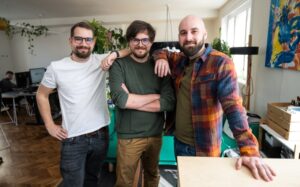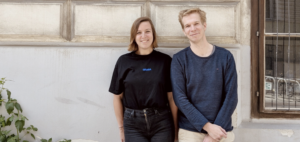Rositsa Zaimova and Her Data Contribution To A Better World

It’s been around a month since Rositsa Zaimova landed in Uganda where she will stay for the next years. She preferred the African country to Brussels where her venture was started. Two years ago, Zaimova co-founded a data solution company called Dalberg Data Insights. Since then she has worked with governments, aid agencies and NGOs on four continents to help them set data-driven development strategies and allocate resources right.
“Our last project was in Brazil and the aim was to build predictable models, so agencies could allocate the scarce medical supplies where they are needed. We are currently working on a very interesting project in Ethiopia related to the development of a labor market information system, so the government can create a strategy against youth unemployment in the years to come,” tells us Zaimova, who was also recognized as one of Forbes’ 30 under 30 Social Entrepreneurs in 2018 and a Global Shaper of the World Economic Forum.
In Uganda, her company built a data platform called AIDA that gathers diverse data to provide real-time, actionable insights that can guide policy making, disaster response, program management and impact assessment for better development outcomes.
Spin-off with impact
Actually, Zaimova had never had a clear idea and plan for her career path. She graduated from ESADE Business School in Spain and was a product manager at Adtelligence. “If you’d asked me five years ago what I’d like to do, I’d never guessed anything of what I’m doing today. The most important part for me has always been to work on a problem that is meaningful and to have the right team around me. As of the work itself – I’m not picky,” she says.
Dalberg Data Insights, at the time Zaimova joined, was a small unit part of a larger consultancy company Real Impact Analytics that was selling data solutions to telecom businesses. The team of four was dedicated to analyzing databases from the developing countries aiming to foster international development. Seeing the potential in developing something bigger and more impactful, Zaimova and her partner Frederic Pivetta spun off.
“In the developed countries there are good national systems for data collections. This is not the case in developing countries. They usually don’t have the data to help them develop strategies e.g. youth unemployment, agriculture development,” explains Zaimova.
It all started with small projects until the new venture managed to partner with Dalberg Global Development Advisors, a global strategy and policy advisory firm, which opened up many doors to the Asian and the African markets.
Data-driven strategies for policymakers
Today the company combines alternative data sources – aggregated telecom operator data and satellite images – to fill this gap. Based on this data the team develops predictive models and provides them different stakeholders working in areas like public health, access to finance, food security, and mobility. For example, Zaimova and her team use aggregated databases to calculate the movement of people and use it to predict outbreaks of diseases like Malaria and Zika, so the medical supplies could be allocated accordingly.
So far, Zaimova and her team of 11 has executed around 15 projects on four continents. They usually have three or four active projects simultaneously. Among the clients of the company could be found various foundations, and NGOs, but also UN agencies, including the UN Development Capital Fund and the Belgian government.
The Uganda project AIDA, which currently excites Zaimova the most, was also in partnership with the UN. Therefore, she moved to the country for the next years and committed to it. “I want us to be part of the digital revolution in Africa,” she says.





























